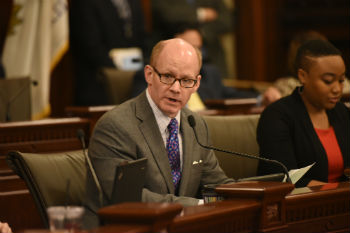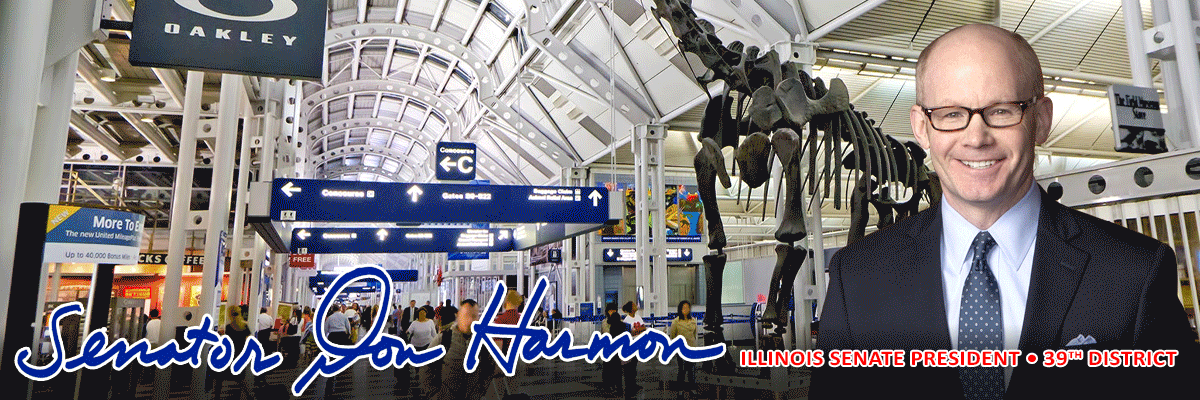 As Illinois’ finances deteriorate and gridlock prevails in Springfield, dark money groups spend millions of dollars to influence elections and public policy without disclosing the sources of their funding.
As Illinois’ finances deteriorate and gridlock prevails in Springfield, dark money groups spend millions of dollars to influence elections and public policy without disclosing the sources of their funding.
That frequently leaves taxpayers and elected officials in the dark about a group’s true motivations for supporting or opposing legislation or policies.
Senate Bill 2089, sponsored by Senator Don Harmon (D-Oak Park), would require greater transparency of politically active dark money groups by requiring them to register as political committees and disclose their donors.
“Accountability for political donations is vitally important in our system of government and elections,” Harmon said. “For too long, dark money groups have been able to hide behind the cloak of their nonprofit status and conceal the true intent of their work, which is to raise unlimited amounts of money and peddle political influence, unbeknownst to the average voter and taxpayer.
Harmon noted that the groups in question are not the charities and civic organizations for whom tax-exempt status was intended.
“These are political groups organized specifically to take advantage of nonprofit protections and hide their political activity,” he said.
Harmon added that as Illinois continues to see unprecedented spending by candidates and outside groups seeking to influence elections, it’s important for voters that the General Assembly closes loopholes that allow runaway spending by dark money groups.
“I think nearly all of us can all agree that a flood of secret political donations by billionaires and corporations is not good for our state,” Harmon said.
Senate Bill 2089 advanced out of the Senate’s Executive Committee in an 11-3 vote Wednesday.
Numerous good-government organizations indicated support for the measure, including the Illinois Campaign for Political Reform, the Better Government Association, Illinois PIRG, and the 2,700 members of the League of Women Voters of Illinois.
Only two organizations indicated they are opposed to the measure, although they did not send representatives to Wednesday’s hearing to explain why: the Illinois Policy Institute and Americans For Prosperity. Both are dark money groups that would be required to disclose their contributions and expenditures when the bill becomes law.




